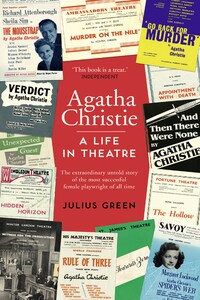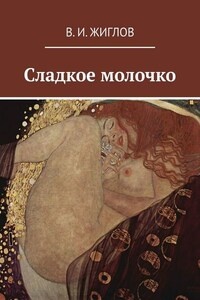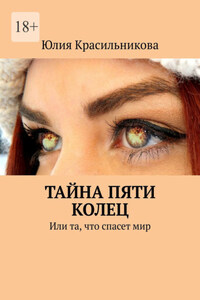Agatha Christie on the set of Witness for the Prosecution (1953).
‘Agatha has the gift of doing what all women want to do, but only men have the chance. She achieves something. Men climb Everest, race fast cars, invent atom bombs, fight wars, become famous surgeons and man lifeboats. In her heart every woman, too, would like to do these things. But all we can do is dream. It is all we can do. It’s a man’s world. The only consolation I get is that Agatha kills off a few of you.’
Margaret Lockwood
17 January 1954
Published by HarperCollinsPublishers Ltd
1 London Bridge Street
London SE1 9GF
www.harpercollins.co.uk
This edition published 2018
First published as Curtain Up 2015
Text © Julius Green 2015, 2018
Agatha Christie archive papers © Christie Archive Trust 2015
Agatha Christie quotations © Agatha Christie Limited 2015
Agatha Christie>® Poirot>® Marple>® and the Agatha Christie signature are registered trademarks of Agatha Christie Limited in the UK and elsewhere. All rights reserved.
www.agathachristie.com
Cover layout design © HarperCollinsPublishers Ltd 2018
Photographs courtesy of The Christie Archive Trust, The Shubert Archive, The University of Bristol Theatre Collection, The National Portrait Gallery, The Peter Saunders Archive, The Museum of the City of New York Theatre Collection, The Theatre Royal Bath Archive and Getty Images.
Julius Green asserts the moral right to be identified as the author of this work.
A catalogue copy of this book is available from the British Library.
All rights reserved under International and Pan-American Copyright Conventions. By payment of the required fees, you have been granted the non-exclusive, non-transferable right to access and read the text of this e-book on screen. No part of this text may be reproduced, transmitted, down-loaded, decompiled, reverse engineered, or stored in or introduced into any information storage and retrieval system, in any form or by any means, whether electronic or mechanical, now known or hereinafter invented, without the express written permission of HarperCollins.
Source ISBN: 9780007546961
Ebook Edition © April 2018 ISBN: 9780007546954
Version: 2018-02-21
A couple of years ago, my friend Julius Green came to see me looking unusually nervous! He said he wanted to write an important history of my grandmother Agatha Christie’s plays and asked if I would give my approval. I did so immediately, because I knew of Julius’ huge knowledge about her plays, and the admiration and passion he had for them. I remembered when we shuttled back and forth on a train to Westcliff-on-Sea in 2001, when Julius organised a festival of all her plays, which was not only a huge success but became a piece of history in itself. Recalling that time, and Julius’s long involvement with the Agatha Christie Theatre Company, I knew I could rely on him to be the right man for the job.
But then there was something more. Although my grandmother wrote plays before the 1950s, the great explosion of interest that occurred around the time of the opening of The Mousetrap and her other successes coincided with the period in my childhood when I spent the most time with her, and became aware what a star she was (even though she hated people saying that!). Therefore nobody could appreciate more than I do how much of a contribution her dramatic output made to her unrivalled reputation, and I am delighted to have in Julius’s book such a fitting tribute to the genius of Agatha Christie as a playwright to help balance her better known achievements as an author.
In addition, I was fascinated by Julius’s insight into the theatrical history of the period, to learn of the forthright personalities of the major players, and to read how my grandmother coped so calmly whilst all around her were living their theatrical lives.
All in all, a real treat for everybody!
MATHEW PRICHARD
June 2015
Given the quantity of published and unpublished material that is quoted in this book, I have decided to standardise various elements of it in order to assist the reader. This includes the layout of playscripts and the style in which the titles of works are expressed: in italics if quoting from a publication and not so if quoting from correspondence. My own occasional comments in the midst of quoted material are indicated by [square brackets]. Minor spelling and typographical errors in original documents have been corrected unless I believe them to be of interest, in which case they are indicated with (sic). Documents quoted in this book which date from before the 1950s tend to refer to what we now call the director of a play as the ‘producer’ and what we now call the producer as the ‘manager’. In such cases I have included a clarification. A number of Agatha Christie’s plays underwent changes of title; where this occurred, the title used in this book is that of the particular draft, production or published edition being discussed.








